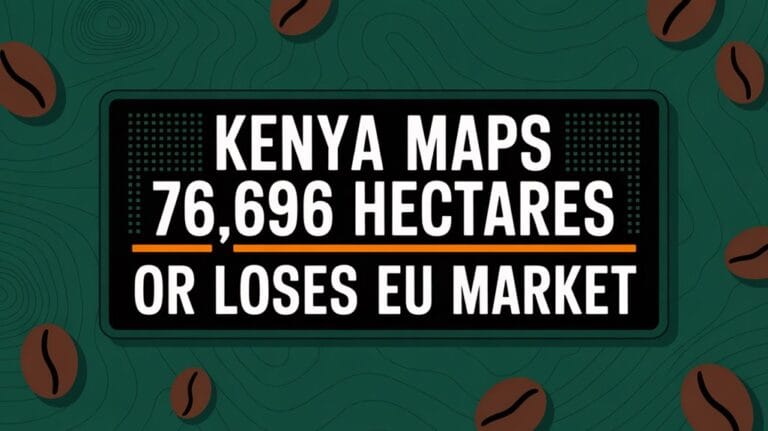Kenya’s Coffee Farmers and EU Mapping Ultimatum
Kenya’s coffee farmers face a 2025 deadline to map all farms under a European Union anti-deforestation rule, risking EU market access if they fail. The European Union Deforestation Regulation (EUDR) requires importers to prove coffee wasn’t grown on land deforested after December 31, 2020. With 55% of Kenya’s coffee exports—roughly 122,699 metric tonnes—sent to EU nations like Belgium and Germany, compliance is urgent. Export regulations now push coffee cooperatives to lead the charge in mapping 76,696 hectares of farmland by December 30, 2025.
The Kenyan government started a two-month mapping push mid-2025, using GPS tools to pin farm locations and confirm no recent deforestation. 30% of Kenya’s coffee farms across 16 counties have already been geo-mapped as part of the initial phase, covering 32,688 hectares of the national coffee-growing area. Smallholders, who produce much of Kenya’s coffee, rely heavily on cooperatives for tech and training. Many lack resources to collect geolocation data alone. In counties like Nandi and Embu, training programs teach farmers how to use digital tools.
Without mapping, cooperatives warn, EU buyers could reject shipments starting in 2026, costing farmers income and Kenya foreign exchange.
Coffee cooperatives act as bridges between farmers and EUDR rules, handling data collection and compliance checks. Groups like Nespresso’s AAA Sustainable Quality Program train cooperative leaders to manage digital traceability systems. An app called TerraTrac, tested in pilot projects, lets farmers log crop details via Android phones. Public-private partnerships are emerging to accelerate compliance, with tech firms offering subsidized devices and connectivity for remote areas. Local guides also help map remote farms faster.
But tech gaps persist—some farmers still struggle with smartphones or internet access.
If mapping lags, Kenya’s coffee sector risks massive losses. EU importers won’t accept unverified shipments after the deadline, which could disrupt supply chains and hurt global trade rankings. Over 40% of Kenya’s coffee-growing counties are already in high-deforestation zones, raising compliance stakes.
Officials say success hinges on cooperatives mobilizing farmers quickly. With the clock ticking, the pressure’s on to protect a crucial economic lifeline for over 150,000 smallholder families.

